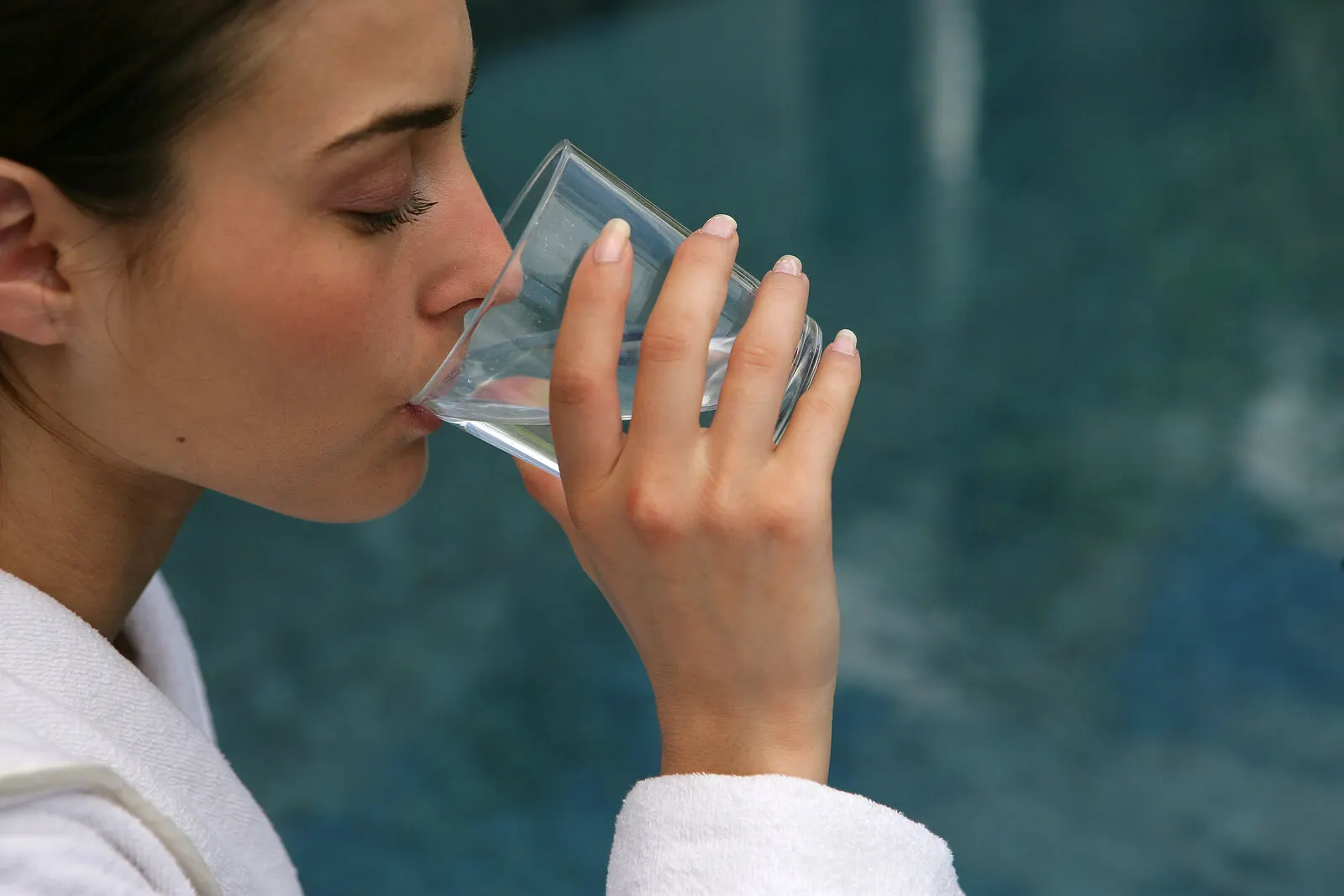5 Tips to Protect the Skin Against the Effects of Air Conditioning

The effects of air conditioning on the skin are quite considerable in some people. In others, there’s a moderate impact, but changes are noticeable. In general, it causes dryness.
There’s no doubt that, during the summer, the heat can get very uncomfortable. Air conditioning cools down the area, in part, by reducing the humidity.
This can change the skin’s naturally occurring hydrolipidic film. The result is eczema and irritation.
Effects of air conditioning on the skin
Continuous or prolonged exposure to air conditioning affects the health of the skin. This is because the skin’s natural pH is acidic, but when exposed to environments with low humidity levels, it becomes alkaline. This dries out the skin and lowers the skin’s defenses.
Air conditioning affects some people more than others. The most noticeable effects are seen in people with pre-existing dry skin or those with a tendency to oily skin. Low humidity leads to evaporation of the hydrolipidic emulsion.
The role of this emulsion is to protect the skin against external aggressions. When it’s diluted, the skin becomes more vulnerable.
While it isn’t possible to do without air conditioning on many occasions, it’s advisable to do what you need to in order to preserve the skin so that it doesn’t cause damage. How?
The best tips to protect the skin against the effects of air conditioning
The best way to protect the skin against the effects of air conditioning is to maintain good hydration in the skin and in the body in general. The ways to achieve this are as follows.
1. Drinking plenty of water
It’s recommended to drink 2 liters of water a day. When we start to use the air conditioning, we should increase how much we drink. This is because the skin loses moisture continually and it’s necessary to recover it.
The advice is to drink water, even if you don’t feel thirsty. It can be done with small frequent sips.
It’s also advisable to increase the intake of some foods, such as cold vegetable soups, fruit, gazpacho and natural juices. There will be greater well-being and the skin will look healthier.

2. Apply moisturizer
Another good idea to contain the effects of air conditioning on the skin is to apply moisturizer regularly. The texture should be light and fresh. In fact, it’s best to put it in the refrigerator and use it after taking a shower.
Creams containing alcohol, fats, or essential oils should be avoided. It isn’t advisable to use products that are comedogenic, as they clog pores. Moisturizing cream provides resistance and elasticity, in addition to preventing premature aging.
Learn more here: Learn How to Make an Anti-Wrinkle Night Cream with Grapeseed Oil
3. Healthy eating
Likewise, several foods help to offset the drying effects of air conditioning. It’s best to eat an antioxidant diet, mostly composed of fruits and vegetables.
Berries, apples, carrots, broccoli, artichokes, cauliflower, spinach and tomatoes are highly recommended. Nuts and dairy products are also recommended, as well as green tea infusions.
4. Continuous washing of hands and face
Washing your hands and face frequently helps to combat the effects of air conditioning on the skin. This promotes moisturization and reinforces hygiene. When skin is clean and moisturized, it looks healthier.
Avoid perfumed or toilet soaps. Instead, choose liquids containing lactic acid. This brings softness and shine to the skin. Neutral soaps are also highly recommended, especially for delicate skin.
It’s very important to learn how to dry your face without damaging your complexion. It isn’t advisable to rub your face with a towel, as this adds an additional aggression. The correct thing to do is to dry your face with light touches. It takes longer, but it’s also safer.
You might also be interested in: Make the Most of Leftover Hand Soap
5. Avoiding tobacco and alcohol
If you’re looking to protect your skin from the aggressions caused by air conditioning, smoking is very counterproductive. Tobacco smoke contains toxins that dry out the skin.
Alcohol is another dehydrating compound. Not only does it act as a diuretic, promoting the expulsion of water from the body, but it also hinders subsequent rehydration.

The right temperature
The best way to avoid the negative effects of air conditioning on the skin is to take preventive measures such as those mentioned above. In fact, none of them are difficult to carry out.
Also, remember to regulate the temperature you set your air-con at. It doesn’t make sense to have it excessively cold, as you’ll use more electricity, and skin damage will increase.
All cited sources were thoroughly reviewed by our team to ensure their quality, reliability, currency, and validity. The bibliography of this article was considered reliable and of academic or scientific accuracy.
- Cruz Cedeño, S. A. (2015). La exposición a los campos electromagnéticos en bajas frecuencias y su influencia en el ph de la piel (Bachelor’s thesis, La Libertad: Universidad Estatal Península de Santa Elena, 2015).
- Gálvez, J. S. (2020). La importancia de proteger nuestra piel al usar equipos de protección individual. Enfermería Dermatológica, 14(39), 7-8.
- Llamas-Velasco, M., & García-Díez, A. (2010). Cambio climático y piel: retos diagnósticos y terapéuticos. Actas Dermo-Sifiliográficas, 101(5), 401-410.
This text is provided for informational purposes only and does not replace consultation with a professional. If in doubt, consult your specialist.








